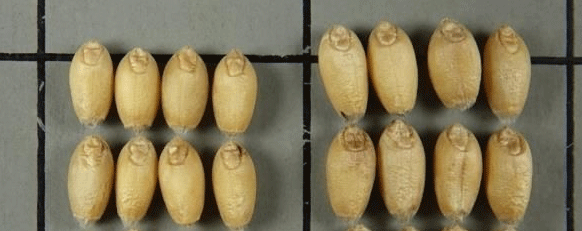In an important update for the agriculture industry, the National Seed Institute of Korea has revised its evaluation standards for barley and wheat, bringing them in line with international guidelines set by the International Union for the Protection of New Varieties of Plants (UPOV). The updated standards, effective from December 27, will be available on the Seed Institute’s website and reflect both global practices and the unique agricultural needs of Korea.
Changes to Barley Evaluation
For barley, the revised criteria reduce the number of evaluation characteristics from 39 to 36. Of these, 20 characteristics—such as the heading time and spike shape—have been either updated or removed to better match the UPOV standards. Despite these reductions, the essential trait of winter hardiness, which is crucial for barley’s survival in Korea’s harsh winters, will remain part of the evaluation process. This trait, known as ‘one-year resistance,’ ensures that barley can withstand severe winter conditions without dying, a critical factor for successful crop yields in colder regions.
The changes aim to streamline the assessment process while maintaining the integrity and relevance of the evaluation, ensuring that barley varieties suited for Korea’s unique geographical and climatic conditions are prioritized.
Wheat Evaluation: Streamlining for Efficiency
The revised wheat evaluation also reflects changes based on the UPOV’s framework. The number of characteristics for wheat has been adjusted from 30 to 31. Eleven characteristics, including traits like awn length and grain color, have been removed or refined, allowing breeders to focus more on traits that directly impact wheat’s growth and yield in Korea’s environment. The new criteria will help streamline the breeding process and ensure that the wheat varieties developed are more resilient and productive.
Why These Updates Matter
These updates are part of an ongoing effort by the National Seed Institute to bring Korea’s seed protection and breeding standards in line with international norms. By aligning with the UPOV, the institute is ensuring that Korea’s crop varieties meet global quality benchmarks, which can increase the country’s agricultural competitiveness.
Additionally, the revised standards will foster more efficient breeding programs, enabling farmers to access higher-quality varieties of barley and wheat that are better suited to local growing conditions. By prioritizing essential traits like winter hardiness and resistance to environmental stresses, the new standards will contribute to more resilient crop production, ultimately benefiting farmers across Korea.
A Future-Ready Agricultural Sector
The updated barley and wheat evaluation criteria represent a major step toward enhancing crop breeding and protecting new varieties in Korea. By integrating international standards with local agricultural needs, these revisions will help improve the quality and resilience of crops, ensuring that Korea’s farmers are equipped to face the challenges of a changing climate. With more efficient evaluation standards, breeders can more effectively develop varieties that support sustainable agriculture and food security in Korea.
Error




